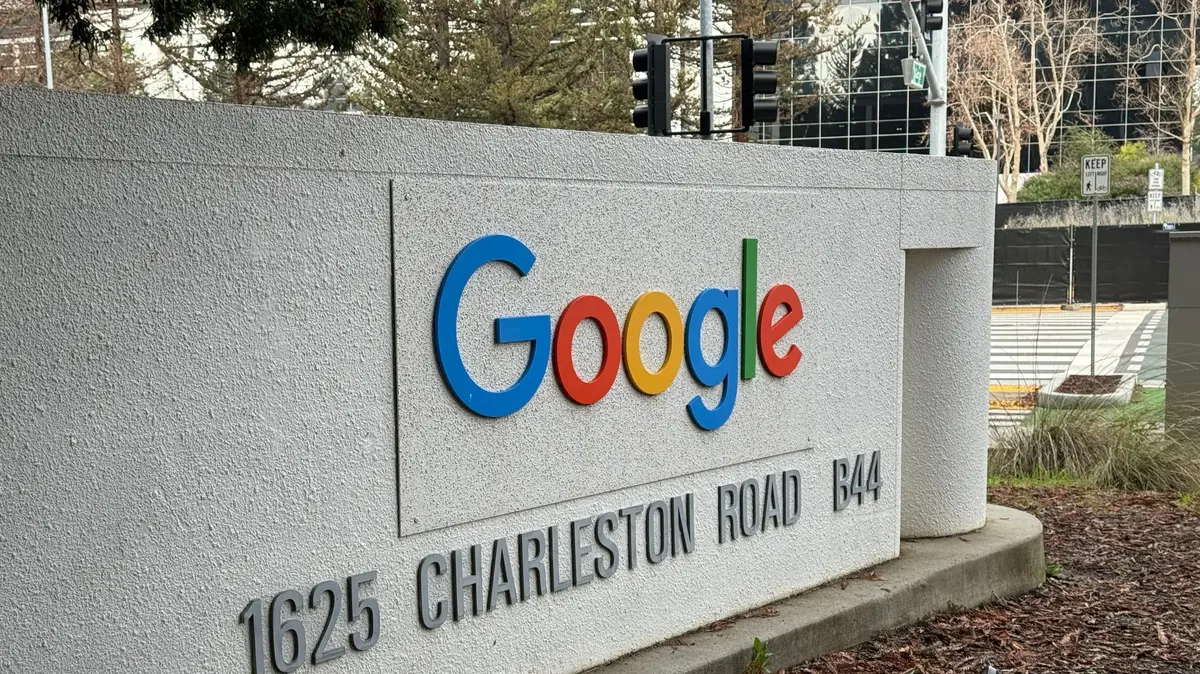One day before the deadline, Google finally reported in late August. The initiative FairTube had previously threatened with legal action against the Google subsidiary YouTube. Their allegations: Certain channels would be penalized on the video platform - and possibly violate the YouTube algorithm against the General Data Protection Regulation (DSGVO). In addition, the platform's business model allegedly promotes bogus self-employment among video makers.
Now YouTube wants to sit down with the activists and union representatives - the talks could be groundbreaking.
The fact that video artists and trade unions have recently opposed the Internet giant is due, among other things, to 54-year-old Jörg Sprave. On his YouTube channel, he shows all sorts of slingshots, sometimes curious videos. Despite 2.2 million subscribers, he can no longer live on the channel's advertising revenue, as he used to. For 2018 YouTube changed its guidelines, because companies wanted to appear with their advertising no longer in videos such as with violent content or religious fanatics. Since then, advertisers can use 2500 criteria to determine the environment in which they want to appear.
As a result, many YouTube creators' revenues have collapsed, "100 percent of them," says Sprave. He wanted to defend himself and founded the YouTubers Union (YTU). This is not a trade union, it's just a Facebook group. In addition, Sprave now gathers 24,000 members from around the world, he sees YTU as a movement. His channel "The Slingshot Channel" serves him as a mouthpiece.
Private
YouTuber and FairTube co-founder Jörg Sprave
At first he had - despite media attention - no success. He traveled to Zurich to Google's European seat, but reached nothing with the responsible persons. The slingshot hobbyist lacked the punch - and a team. That changed this summer. Together with IG Metall he founded the project FairTube. The creators denounced YouTubes practices and provided the group with a deadline by the end of August. "That's a little earthquake," says Sprave. YouTube would not have reacted without IG Metall.
The demands: FairTube wants to know how videos are sorted into certain categories. If a bot assigns videos to an advertising-unfriendly environment - Sprayer's slingshots, for example, in the category "weapons" - the revenue is reduced significantly. Also, sometimes YouTube is blocking channels for no understandable reason, complains FairTube. In order to resolve such conflicts, the initiative calls for human contact and participation, for example through an advisory council.
YouTubers demand more insight
In most cases, the video story only looks after the largest channels for which a partner has its own e-mail connection to YouTube. Otherwise, the company prides itself on its meetings, where creators could exchange views. However, even channels with hundreds of thousands of subscribers are hardly ever looked after.
FairTube also demands more transparency. YouTubers should understand why videos are marketed in a certain way. Currently, according to the activists, YouTube violates the DSGVO, according to which users can get an overview of which personal data companies store about them. According to the activists, YouTube leaves it open to what extent the algorithm may also process the personal information. Based on this data, YouTube would monetize and recommend - without traceability for the creators.
Reproach of a possible false self-employment
So could FairTube also fundamentally trigger - what rights do users have in terms of algorithms? Julia Krüger writes for Netzpolitik.org and places hopes in the talks. "The GDPR was a big step," she says. However, the GDPR refers only to automated decisions with legal effect - however, there are no recommendation systems.
Whether the categorizations and recommendations of YouTube are covered by the GDPR, so be open. "That should now be clarified and the law supplemented," says Krüger. In any case, it would like to see not only full-time video producers, but all Internet users benefit from a broader DSGVO that also covers recommendation-based algorithms.
Also in the debate is whether the video makers in other respects could have more rights. Currently, they work independently, the labor lawyer Thomas Klebe told Netzpolitik.org but that YouTuber may be considered fake self-employed, so could be particularly dependent on the platform as a contractor. "For example, as a partner, they work to the very best of YouTube's rules and directives, are constantly being rated and controlled in their work, and all acquisition, customer management, advertising, YouTube, and not the creator."
Dado Ruvic / REUTERS
User in front of YouTube logo (icon image): Possibly pioneering talks
"To do a good job for all employees"
"Weird", so weird, this view is found by the creators David Hain and Robin Blase. In their pervasive "Sorcerers" they argued that most video makers also have merchandise and other pillars besides YouTube. In addition, the company does not force anyone to be at a workplace at nine o'clock - but only the "house rules" apply.
But it is precisely this working world that is changing with the platform economy, apparently also because of the IG Metall participates. In times of modern jobs, it is becoming increasingly important for unions to reach and protect atypical workers as well. Not an easy task, "many unions are still struggling," says Jörg Sprave.
"With the new world of work, IG Metall is also developing in order to carry out good work for all employees," says the second chairman of IG Metall, Christiane Benner, SPIEGEL. Clearly distinguishing between employees and companies is difficult for solo self-employed working from home. Platforms like YouTube also play their part. "In the platform economy, the power structure has shifted in favor of the Internet companies that define their own rules," says Benner. The law therefore requires new regulations.
DPA
Christiane Benner from IG Metall: Working World in Transition
What is the strategy for the talks with YouTube, the "first success", as Christiane Benner says? Jörg Sprave shows his willingness to compromise. However, the transparency of how YouTube videos are recommended and marketed is not negotiable. "These changes directly affect the livelihood of many." In doubt, the artists left YouTube, after all, there are enough alternative platforms for video and streaming: such as mixers from Microsoft or Amazon's Twitch.
If Google does not meet the video makers, FairTube wants to continue to press and drag them to court. There, on the one hand the allegation of the DSGVO violations, on the other hand, the possible fake self-employment of some YouTuber be examined. Apart from that, IG Metall is planning publicity campaigns with the YouTubers Union.
A YouTube spokesperson said, "Unlike what is published in FairTube's publications, YouTube Creator is not a legal employee of YouTube and we have told the unions in great detail how YouTube transparently informs and supports Creator. "
On October 22, representatives of FairTube and DGB and Ver.di will speak with Google in Berlin. "But we also made it clear that we will not enter into formal negotiations," says the YouTube spokesman. After all, FairTube is not a union. Whether the campaign is paving the way in this direction will be seen in the coming weeks.







